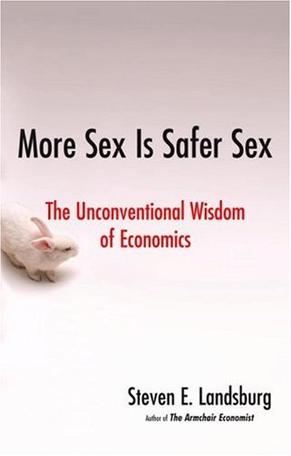-

Capitalism from Below
More than 630 million Chinese have escaped poverty since the 1980s, reducing the fraction remaining from 82 to 10 percent of the population. This astonishing decline in poverty, the largest in history, coincided with the rapid growth of a private enterprise economy. Yet private enterprise in China emerged in spite of impediments set up by the Chinese government. How did private enterprise overcome these initial obstacles to become the engine of China's economic miracle? Where did capitalism come from? Studying over 700 manufacturing firms in the Yangzi region, Victor Nee and Sonja Opper argue that China's private enterprise economy bubbled up from below. Through trial and error, entrepreneurs devised institutional innovations that enabled them to decouple from the established economic order to start up and grow small, private manufacturing firms. Barriers to entry motivated them to build their own networks of suppliers and distributors, and to develop competitive advantage in self-organized industrial clusters. Close-knit groups of like-minded people participated in the emergence of private enterprise by offering financing and establishing reliable business norms. This rapidly growing private enterprise economy diffused throughout the coastal regions of China and, passing through a series of tipping points, eroded the market share of state-owned firms. Only after this fledgling economy emerged as a dynamic engine of economic growth, wealth creation, and manufacturing jobs did the political elite legitimize it as a way to jump-start China's market society. Today, this private enterprise economy is one of the greatest success stories in the history of capitalism. -

More Sex Is Safer Sex
Steven Landsburg's writings are living proof that economics need not be "the dismal science." Readers of The Armchair Economist and his columns in Slate magazine know that he can make economics not only fun but fascinating, as he searches for the reasons behind the odd facts we face in our daily lives. In More Sex Is Safer Sex, he brings his witty and razor-sharp analysis to the many ways that our individually rational decisions can combine into some truly weird collective results -- and he proposes hilarious and serious ways to fix just about everything. When you stand up at the ballpark in order to see better, you make a rational decision. When everyone else does it too, the results, of course, are lousy. But this is just the tip of the iceberg of individual sanity and collective madness. Did you know that some people may actually increase the spread of sexually transmitted diseases when they avoid casual sex? Do you know why tall people earn more money than shorter competitors? (Hint: it isn't just unfair, unconscious prejudice.) Do you know why it makes no sense for you to give charitable donations to more than one organization? Landsburg's solutions to the many ways that modern life is unfair or inefficient are both jaw-dropping and maddeningly defensible. We should encourage people to cut in line at water fountains on hot days. We should let firefighters keep any property they rescue from burning houses. We should encourage more people to act like Scrooge, because misers are just as generous as philanthropists. Best of all are Landsburg's commonsense solutions to the political problems that plague our democracy. We should charge penalties to jurors if they convict a felon who is later exonerated. We should let everyone vote in two congressional districts: their own, and any other one of their choice. While we're at it, we should redraw the districts according to the alphabetical lists of all voters, rather than by geography. We should pay FDA commissioners with shares of pharmaceutical company stocks, and pay our president with a diversified portfolio of real estate from across the country. Why do parents of sons stay married more often than parents who have only daughters? Why does early motherhood not only correlate with lower income, but actually cause it? Why do we execute murderers but not the authors of vicious computer viruses? The lesson of this fascinating, fun, and endlessly provocative book is twofold: many apparently very odd behaviors have logical explanations, and many apparently logical behaviors make no sense whatsoever. -

大家的经济学
本书作者岑科先生是学经济管理出身,但是他的经济学修养相当好,由他来编写这本书再好不过了。我希望这本书能够改变目前学校里的经济学脱离实际内容沉闷,逻辑不清的种种毛病,开辟出一条教授经济学的新道路。 --茅于轼 这本书对经济学的各个方面覆盖比较全面,语言浅显易懂,并且有很多的小故事来阐述一些理论,使读者更透彻更轻松的理解经济学理论中的论断。每小节后的一些题目和每章后的总结,使读者看过一章后有一个很好的思考和对知识的概括。一本很适合年青人读的经济学启蒙书籍。 --victor xiong -

The Economic Naturalist
在线阅读本书 Why do the keypads on drive-up cash machines have Braille dots? Why are round-trip fares from Orlando to Kansas City higher than those from Kansas City to Orlando? For decades, Robert Frank has been asking his economics students to pose and answer questions like these as a way of learning how economic principles operate in the real world-which they do everywhere, all the time. Once you learn to think like an economist, all kinds of puzzling observations start to make sense. Drive-up ATM keypads have Braille dots because it’s cheaper to make the same machine for both drive-up and walk-up locations. Travelers from Kansas City to Orlando pay less because they are usually price-sensitive tourists with many choices of destination, whereas travelers originating from Orlando typically choose Kansas City for specific family or business reasons. The Economic Naturalist employs basic economic principles to answer scores of intriguing questions from everyday life, and, along the way, introduces key ideas such as the cost-benefit principle, the “no cash on the table” principle, and the law of one price. This is as delightful and painless a way to learn fundamental economics as there is.